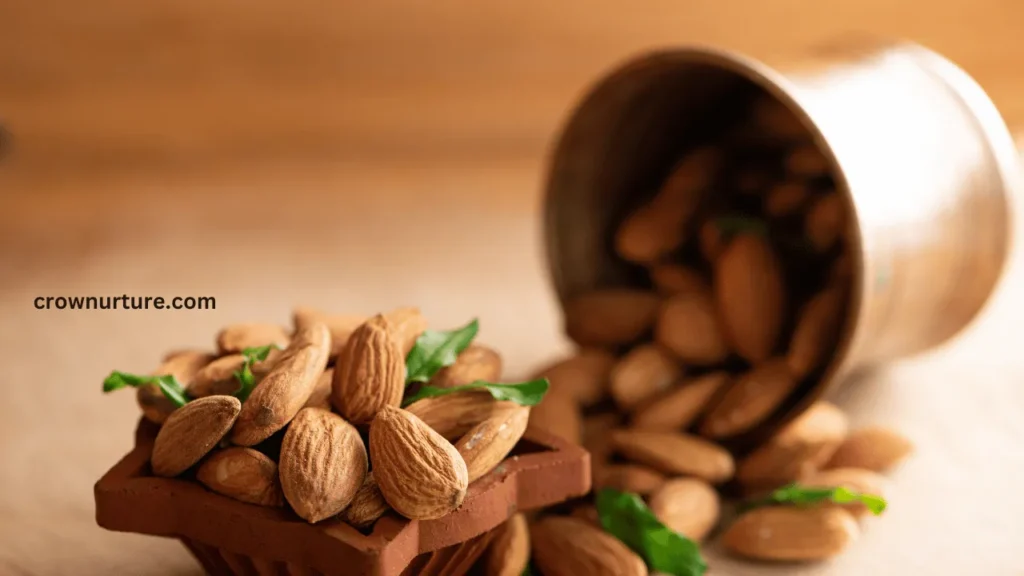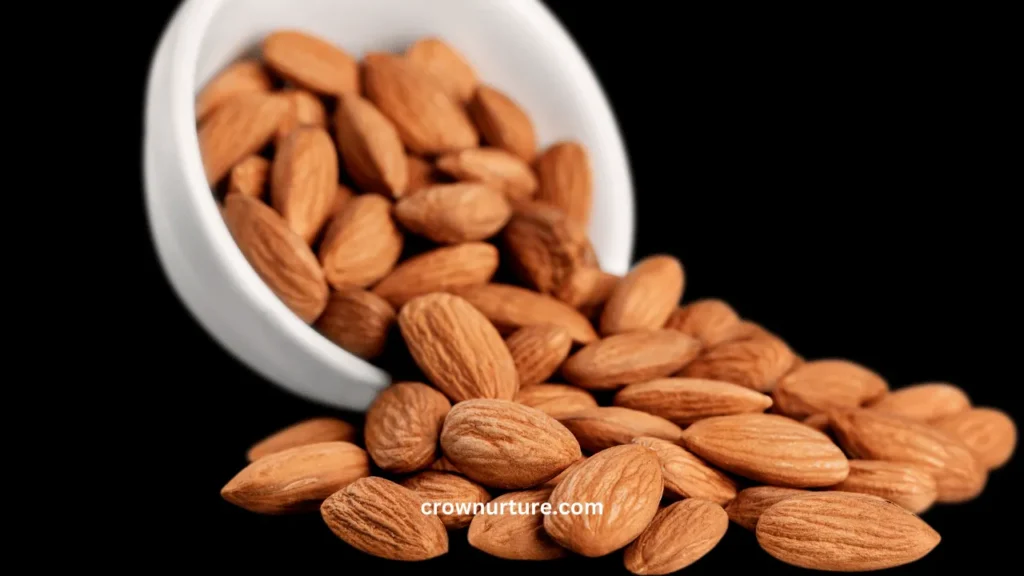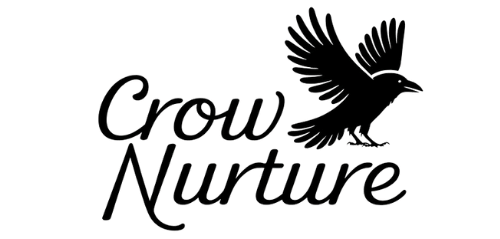Crows are widely admired for their remarkable intelligence and adaptability, often seen in their ability to navigate diverse environments and thrive on varied diets. These birds, known for their resourcefulness, can forage in urban, suburban, and natural areas, making them a common sight around the world.
However, when it comes to human foods, one question often arises: Can crows safely eat almonds? Understanding what crows can and cannot eat is important for bird enthusiasts and anyone who enjoys feeding wildlife.
Almonds are widely considered a superfood for humans, rich in nutrients that support energy and health. But are these benefits the same for birds like crows? Feeding wild animals can impact their behavior, health, and interactions with the environment, so it’s vital to know if almonds are a safe and beneficial choice for them.
In this article, we’ll explore the dietary habits of crows, analyze the nutritional value of almonds, identify potential risks and ethical considerations, and provide actionable tips on feeding almonds to these intelligent birds responsibly. Whether you’re a bird lover or just curious, you’ll find everything you need to know about crows and almonds right here.

Contents
1. Understanding the Crow’s Diet and Foraging Behavior
Crows are highly omnivorous birds, meaning their diet includes both plant and animal matter. In the wild, they consume a wide range of foods, such as insects, seeds, fruits, small animals, eggs, carrion, and even human leftovers.
This varied diet is a testament to their adaptability, which allows them to survive in diverse habitats, from bustling cities to remote forests. These birds are known for their opportunistic feeding behavior, taking advantage of whatever food is readily available.
Their intelligence plays a significant role here; they have been observed using tools to access food and even remembering the locations of food sources. Crows are especially drawn to foods with high energy content, which helps them meet the demands of their active lifestyle.
Food preferences in crows are influenced by availability and nutritional needs. While they don’t naturally encounter almonds in their environment, they are likely to be attracted to the nut’s energy-dense properties. However, understanding the natural diet of crows is essential to ensure that any supplemental feeding aligns with their health requirements.
2. The Nutritional Value of Almonds
Almonds are a powerhouse of nutrients, often referred to as a superfood for humans. They are rich in healthy fats, protein, fiber, and essential vitamins and minerals, making them a potentially beneficial food source for birds like crows.
- Protein and Healthy Fats: These macronutrients provide a substantial energy boost, helping birds maintain their active lifestyles. Fats also play a critical role in insulating birds during colder weather and supporting healthy feather growth.
- Vitamins and Minerals: Almonds contain Vitamin E, which acts as an antioxidant, and magnesium, which supports muscle function and overall health. These nutrients can enhance a crow’s vitality and immune system.
- Fiber Content: The fiber in almonds supports digestion, although too much can sometimes cause discomfort. This is why moderation is key when offering almonds to crows.
While the nutritional benefits of almonds make them a potentially good snack for crows, these benefits must be balanced against the potential risks.

3. Potential Risks of Almond Consumption for Crows
Although almonds can be nutritious, there are certain risks associated with feeding them to crows, particularly if they are not prepared properly:
- Choking Hazard: Whole almonds can be difficult for crows to manage, especially younger or smaller birds. To avoid this risk, always break almonds into smaller pieces or crush them before offering.
- Digestive Issues: Almonds are dense and can be tough for crows to digest in large quantities. Overfeeding may lead to stomach upset or digestive blockages.
- Pesticide Contamination: Non-organic almonds may contain pesticide residues, which can be harmful to birds. Always choose organic, unsalted, and raw almonds to minimize this risk.
- Dependency on Human Food: Regularly feeding almonds to crows, or any wildlife, can lead to dependency on human-provided food, disrupting their natural foraging behavior and making them more vulnerable to food scarcity.
By understanding these risks, you can ensure that almonds remain a safe and occasional treat rather than a harmful addition to a crow’s diet.
4. Ethical Considerations in Feeding Crows
Feeding wildlife is a delightful experience, but it comes with ethical responsibilities. Crows are part of a larger ecosystem, and human intervention—such as supplemental feeding—can affect their behavior and interactions with the environment.
Impact on Behavior: Feeding crows regularly can alter their natural foraging habits, making them dependent on human-provided food. This dependency can lead to overpopulation in certain areas, increased competition for resources, and potential conflicts with other species.
Attracting Unwanted Wildlife: Offering almonds or other food items in outdoor spaces may attract pests like rodents, squirrels, or even predators, which can disturb the ecological balance. Proper placement of food can mitigate these risks.
Promoting Responsible Practices: Feeding crows should be done in moderation and as a supplement to their natural diet. Providing clean, nutritious food in small amounts ensures that it benefits rather than harms them.
5. How to Safely Feed Almonds to Crows
To safely include almonds in a crow’s diet, consider the following tips:
- Prepare the Almonds: Crush or slice almonds into small, manageable pieces to reduce the risk of choking.
- Use Raw and Unsalted Almonds: Avoid flavored or salted almonds, as additives like salt and sugar can harm birds.
- Offer in Moderation: Limit feeding to a few pieces of almond once or twice a week to avoid overfeeding and digestive issues.
- Provide a Variety of Foods: Balance almonds with other natural food sources, such as fruits, seeds, and insects, to ensure a diverse and nutritious diet.
- Choose a Safe Feeding Location: Place the food in areas where crows can eat undisturbed, away from predators or heavy human activity.
These practices ensure that almonds become a safe and beneficial supplement to a crow’s natural diet.
Conclusion
Crows can eat almonds, but careful preparation and moderation are essential to ensure their safety. Almonds are a nutrient-rich treat, offering healthy fats, protein, and essential vitamins that can support the health and energy of these intelligent birds.
However, whole almonds pose a choking hazard, and excessive feeding can lead to digestive issues or behavioral changes. Feeding crows is an enjoyable activity, but it must be done responsibly.
By understanding their dietary needs and the potential risks of certain foods, you can provide support for their health while respecting their role in the ecosystem. When offered thoughtfully, almonds can be a delightful way to connect with these fascinating birds.
FAQs
1. Can crows eat whole almonds?
Whole almonds are a choking hazard, so it’s safer to offer them crushed or sliced.
2. Are almonds nutritious for crows?
Yes, almonds are rich in protein, healthy fats, and vitamins, making them a nutritious treat when offered in moderation.
3. Can crows eat salted almonds?
No, salted almonds contain additives that can be toxic to crows. Always use raw, unsalted almonds.
4. How many almonds can I give to crows?
Limit feeding to a few pieces once or twice a week to avoid overfeeding and digestive issues.
5. Do crows like almonds?
Yes, crows are likely to enjoy almonds due to their energy-dense properties and taste.
6. Can almonds harm crows?
Almonds can cause issues if fed in excess, are contaminated with pesticides, or are not broken into smaller pieces.








